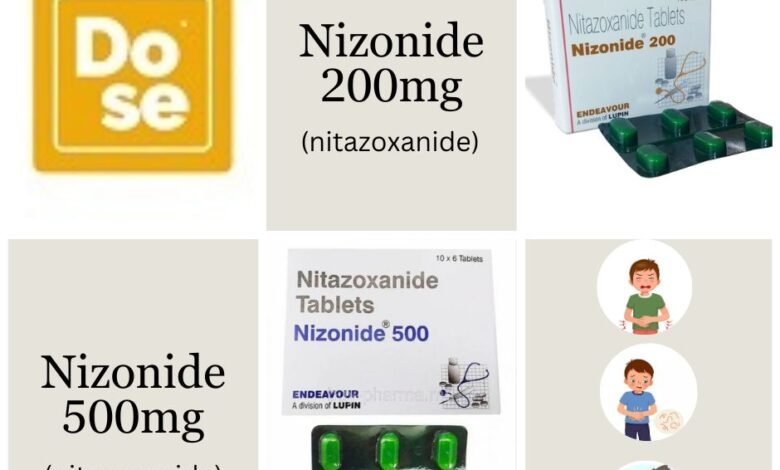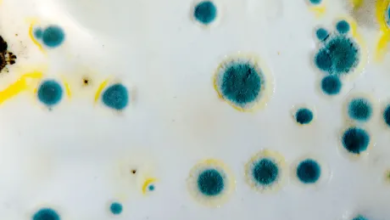
Intestinal parasites are a common health issue that can cause a variety of digestive problems, ranging from mild discomfort to severe illness. Parasites like Giardia, Entamoeba histolytica, and tapeworms can infiltrate the digestive system and cause conditions such as diarrhea, abdominal pain, and malnutrition. Fortunately, modern medicine offers effective solutions, and one such powerful medication is Nizonide (Nitazoxanide 500 mg), which has proven to be a reliable treatment for parasitic infections. This article explores how Nizonide works to target and eliminate harmful intestinal parasites and restore digestive health.
The Science Behind Nizonide
Nizonide (Nitazoxanide 200 mg) is a broad-spectrum antiparasitic and antimicrobial agent that is highly effective against a wide range of parasites and some bacterial infections. Its active ingredient, Nitazoxanide, inhibits the enzyme pyruvate-ferredoxin oxidoreductase (PFOR), a crucial enzyme required for anaerobic metabolism in many parasites. This enzyme helps parasites to metabolize and produce energy. By inhibiting PFOR, Nizonide disrupts the parasite’s ability to generate energy, leading to its eventual death.
The mechanism by which Nitazoxanide works is vital because many parasitic infections, especially those involving protozoa like Giardia and Entamoeba histolytica, thrive in anaerobic environments. By preventing these organisms from generating energy, Nizonide causes them to cease functioning, making it an effective treatment for a variety of parasitic infections in the intestines.
Nizonide’s Broad Spectrum of Activity
One of the most impressive aspects of Nizonide is its broad spectrum of activity against different types of intestinal parasites. It is effective against both protozoa and helminths (worms). This includes organisms that cause common parasitic infections like Giardiasis, Amebiasis, and Cryptosporidiosis. It is also used to treat Helminthic infections, including pinworms and roundworms.
- Giardiasis: Caused by Giardia lamblia, this infection is often contracted through drinking contaminated water. It results in symptoms such as diarrhea, abdominal cramps, and nausea. Nizonide targets the Giardia parasite and effectively eliminates it by inhibiting its energy production.
- Amebiasis: This condition is caused by Entamoeba histolytica, a parasite that can invade the intestines and cause severe dysentery, diarrhea, and abdominal pain. Nizonide’s ability to target this parasite’s metabolic processes helps to relieve the symptoms and treat the infection effectively.
- Cryptosporidiosis: This parasitic infection is caused by Cryptosporidium, often contracted by drinking contaminated water. Nizonide’s action against this parasite helps in reducing the symptoms such as watery diarrhea and dehydration.
- Helminthic Infections: Nizonide is also effective against certain types of intestinal worms, such as roundworms and tapeworms, providing relief from digestive discomfort and nutritional deficiencies caused by these parasites.
How Nizonide is Administered
Nizonide is typically taken in oral tablet form. The dosage and duration of the treatment depend on the specific parasitic infection being treated and the patient’s age, weight, and overall health. For most infections, a typical course involves taking the medication twice a day for 3 to 7 days. For severe cases or persistent infections, longer treatment durations may be required, and a healthcare provider may adjust the dosage accordingly.
It is crucial to complete the full course of treatment, even if symptoms improve before the medication is finished, as discontinuing early can result in the parasites surviving and potentially causing a recurrence of the infection.
Common Side Effects of Nizonide
While Nizonide is generally well-tolerated, like any medication, it can cause side effects. The most common side effects include:
- Gastrointestinal symptoms: Nausea, vomiting, abdominal pain, and diarrhea.
- Headaches and dizziness: Some individuals may experience mild headaches or dizziness while taking the medication.
- Allergic reactions: Rarely, some individuals may develop an allergic reaction, presenting as rash, swelling, or difficulty breathing.
If any severe or unexpected symptoms occur, it is important to seek medical attention immediately. Otherwise, most side effects are mild and resolve once the treatment is completed.
Benefits of Nizonide Over Other Treatments
Nizonide has several advantages over other antiparasitic treatments. For instance, traditional antiparasitic medications might only be effective against specific types of parasites, whereas Nizonide has a broad spectrum of activity, meaning it can treat multiple types of parasitic infections at once. This makes it a versatile option for treating different gastrointestinal infections in one regimen.
Additionally, Nizonide is relatively well-tolerated, with fewer and less severe side effects compared to some other medications. The ease of administration (oral tablets) and relatively short treatment duration make it convenient for patients.
Conclusion
Nizonide is a powerful and versatile medication that effectively targets and eliminates harmful intestinal parasites. Whether it’s protozoal infections like Giardia and Entamoeba histolytica or helminthic infections like roundworms and pinworms, Nizonide’s ability to inhibit the essential enzymes required for parasite metabolism makes it a first-line treatment for many intestinal parasitic infections. Its broad spectrum, minimal side effects, and ease of administration have positioned it as a reliable and trusted solution for improving digestive health and alleviating the symptoms associated with parasitic infections.


